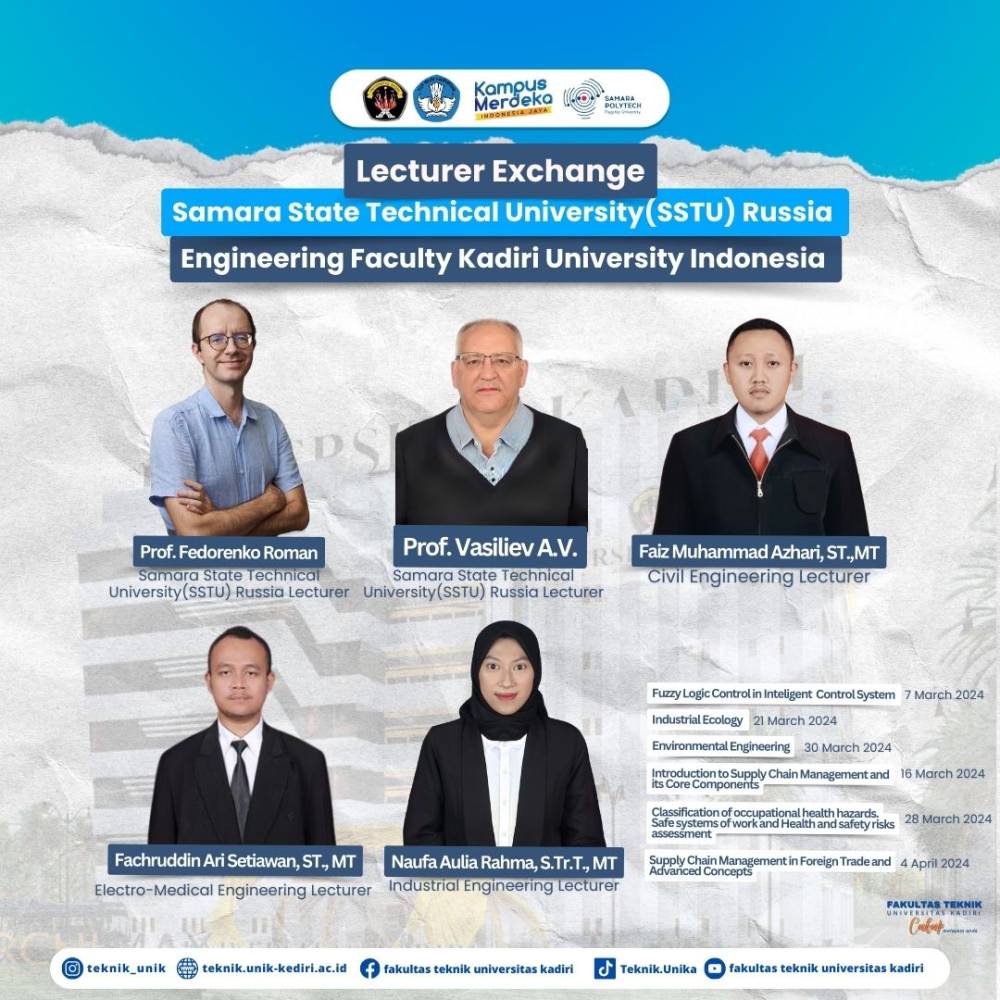
“Lecturers Exchange Engineering Faculty of Kadiri University and Samara State Technical University, Russia 2024”
.png)
As a follow-up to the faculty's strategic plan agreed upon by the faculty leadership, the University, and collaboration with stakeholders and the entire academic community of the Engineering Faculty of Kadiri University, collaboration with international institutions is essential as a vehicle for development, learning, follow-up, and improving the quality and competitiveness of the institution. Therefore, the Engineering Faculty of Kadiri University's collaboration with international institutions must be maintained and able to produce outputs that can enhance the University's development.
Knowledge exchange and interaction between the Engineering Faculty of Kadiri University and the Faculty of Engineering, Samara State Technical University (SSTU), Russia, took place through a Lecturer Exchange event held online via Zoom as an implementation of the Cooperation Agreement. This event was held from March 7, 2024, to April 4, 2024.
This Lecturer Exchange not only provided a forum for knowledge exchange but also created an opportunity for participants to understand new perspectives, innovative teaching methods, and current trends in the field of engineering. By participating in learning sessions led by lecturers from both universities, students experienced diverse teaching approaches and gained broader insights into the subjects they were studying.
The speakers of Lecturers Exchange Kadiri University and SSTU Russia
1. Mr. Fachruddin Ari Setiawan, S.T., M.T
2. Ms. Naufa Aulia Rahma, S.Rt.T., M.T
3. Mr. Faiz Muhammad Azhari, S.T., M.T
4. Prof. Fedorenko Roman
Prof. Vasiliev A.V.
Through the Lecturer Exchange initiative between the Faculty of Engineering at Kadiri University and the Faculty of Engineering at Samara State Technical University (SSTU), Russia, several strategic objectives were pursued to impact students' academic and cultural development positively.
This activity facilitated the exchange of technical knowledge and insights and served as a vehicle for building deep intercultural relationships. Technology, particularly the Zoom platform, provided broad accessibility without geographical limitations, enabling participants to engage in productive discussions and meaningful interactions.
.png)